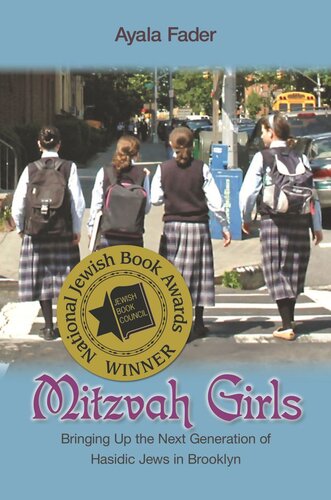

Most ebook files are in PDF format, so you can easily read them using various software such as Foxit Reader or directly on the Google Chrome browser.
Some ebook files are released by publishers in other formats such as .awz, .mobi, .epub, .fb2, etc. You may need to install specific software to read these formats on mobile/PC, such as Calibre.
Please read the tutorial at this link: https://ebookbell.com/faq
We offer FREE conversion to the popular formats you request; however, this may take some time. Therefore, right after payment, please email us, and we will try to provide the service as quickly as possible.
For some exceptional file formats or broken links (if any), please refrain from opening any disputes. Instead, email us first, and we will try to assist within a maximum of 6 hours.
EbookBell Team

5.0
58 reviewsMitzvah Girls is the first book about bringing up Hasidic Jewish girls in North America, providing an in-depth look into a closed community. Ayala Fader examines language, gender, and the body from infancy to adulthood, showing how Hasidic girls in Brooklyn become women responsible for rearing the next generation of nonliberal Jewish believers. To uncover how girls learn the practices of Hasidic Judaism, Fader looks beyond the synagogue to everyday talk in the context of homes, classrooms, and city streets.
Hasidic women complicate stereotypes of nonliberal religious women by collapsing distinctions between the religious and the secular. In this innovative book, Fader demonstrates that contemporary Hasidic femininity requires women and girls to engage with the secular world around them, protecting Hasidic men and boys who study the Torah. Even as Hasidic religious observance has become more stringent, Hasidic girls have unexpectedly become more fluent in secular modernity. They are fluent Yiddish speakers but switch to English as they grow older; they are increasingly modest but also fashionable; they read fiction and play games like those of mainstream American children but theirs have Orthodox Jewish messages; and they attend private Hasidic schools that freely adapt from North American public and parochial models. Investigating how Hasidic women and girls conceptualize the religious, the secular, and the modern, Mitzvah Girls offers exciting new insights into cultural production and change in nonliberal religious communities.